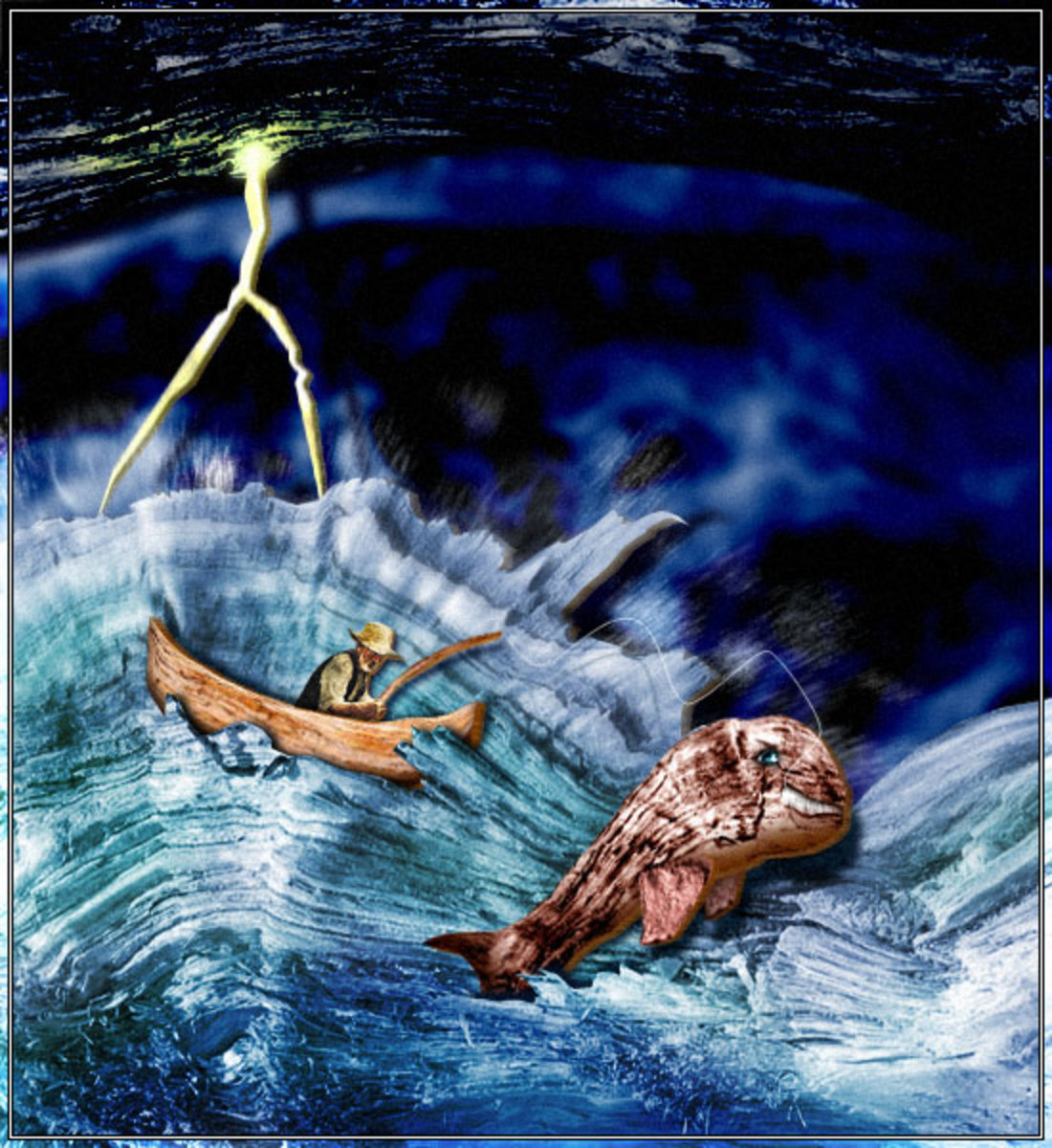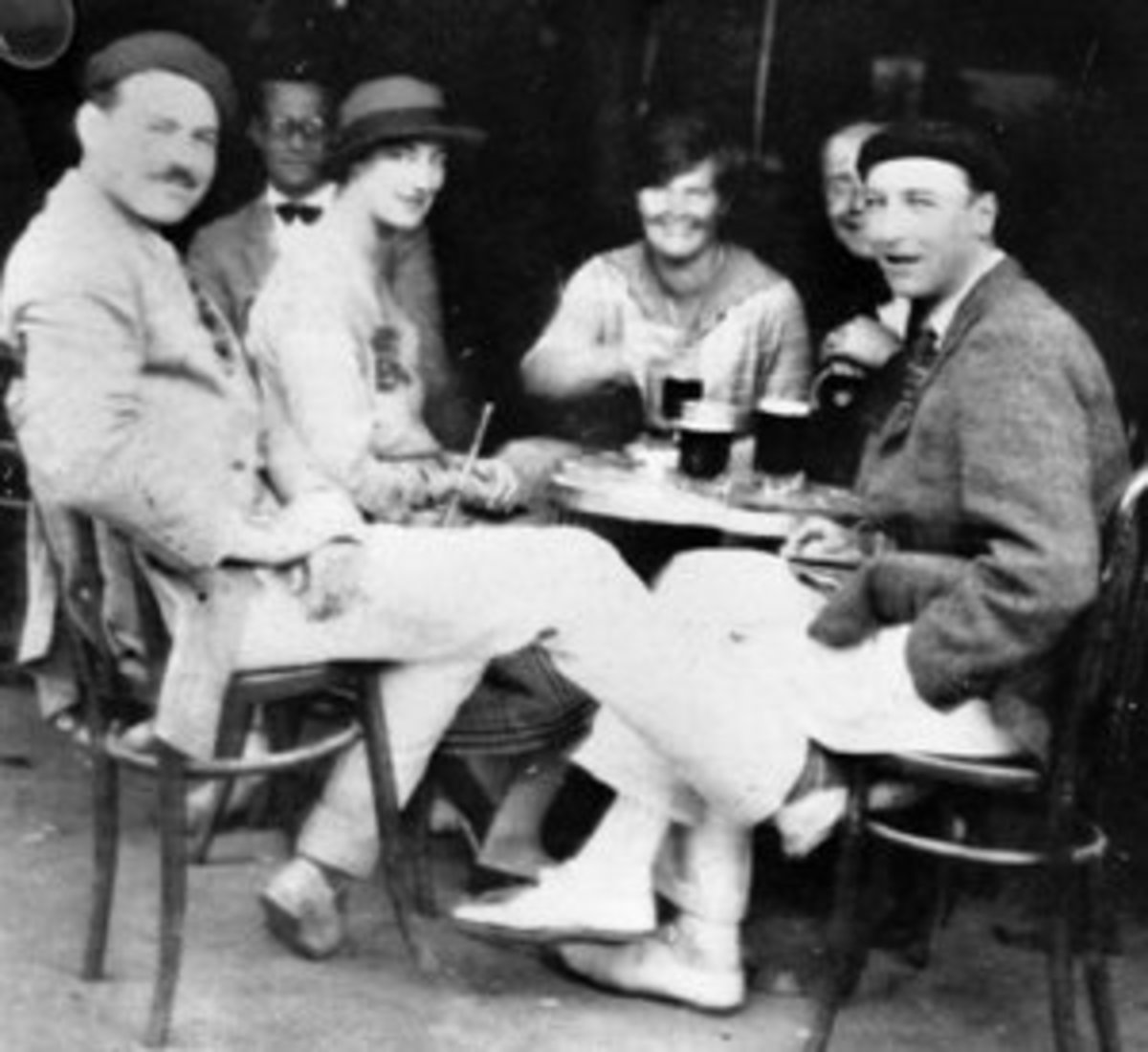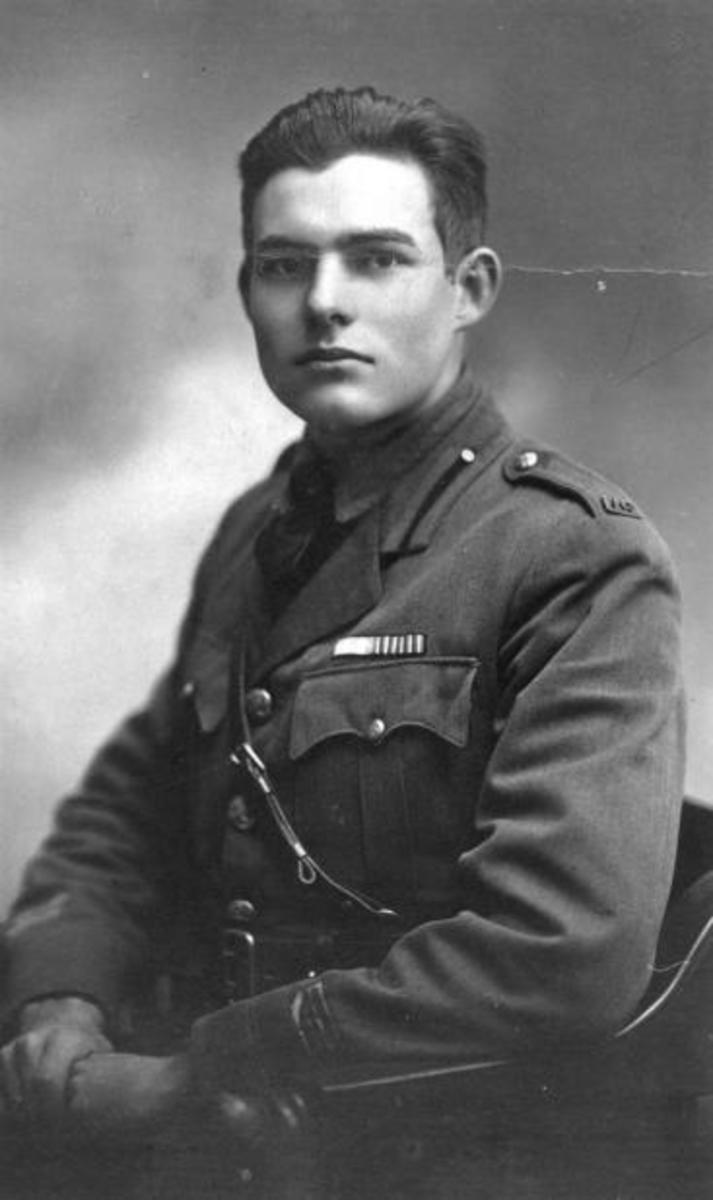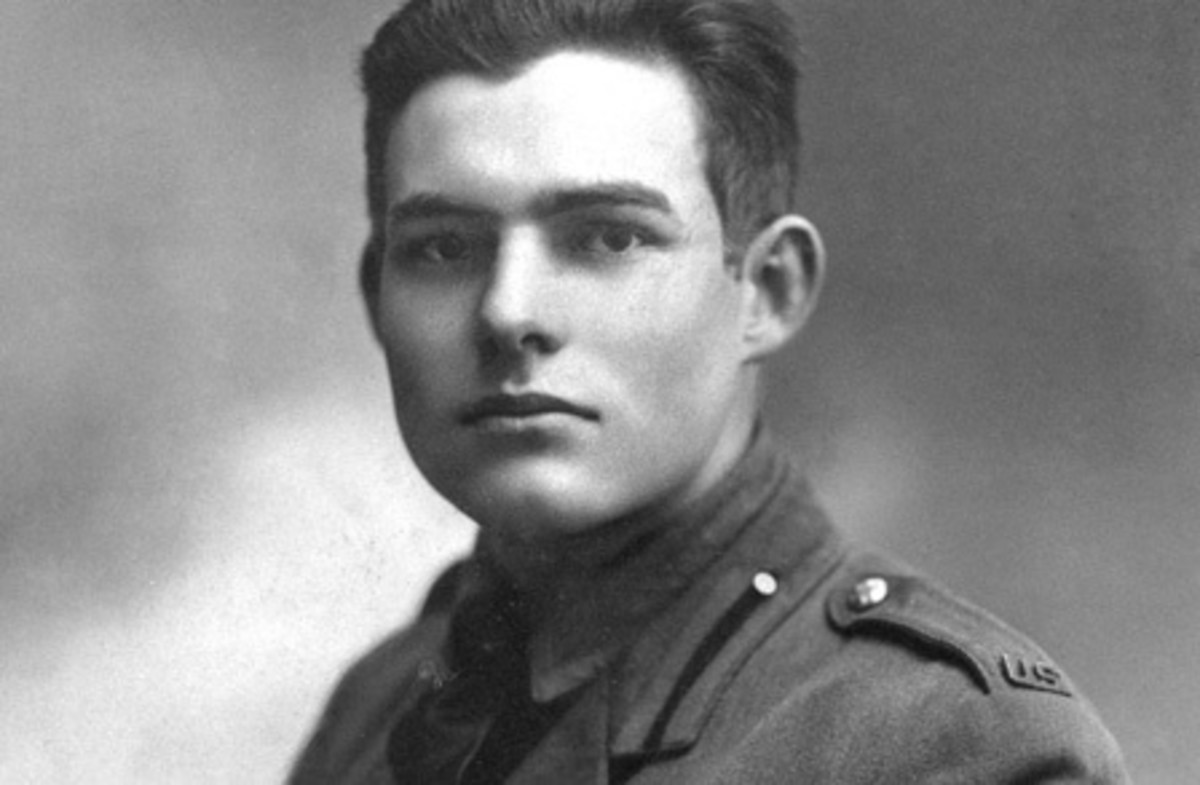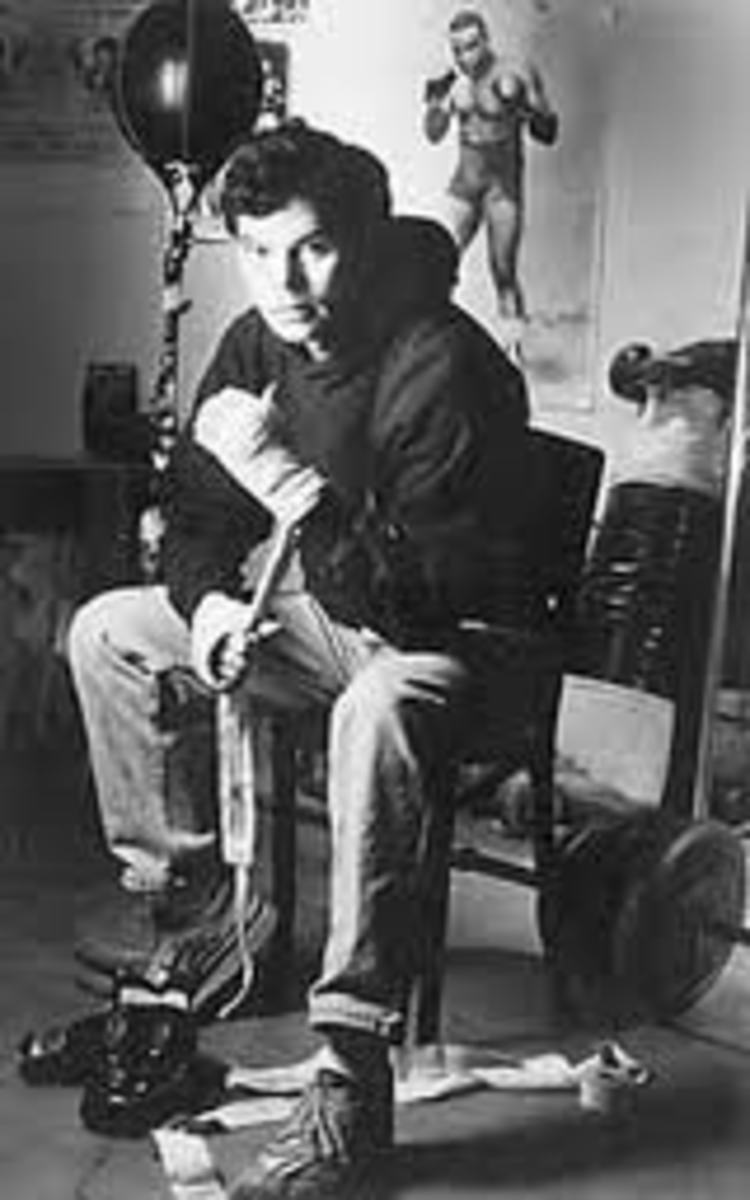Books That Shaped America-- Part 2
A man renting a typewriter for a few hours to quickly pick out a story or novel to help feed his family. A young woman, crippled by lupus and living on a farm in Georgia with her mother and her flock of peafowl. A roaming journalist who's life was marked by loneliness and depression. They may not seem very important, and if they lived next door to you, they very well might be the oddities of the neighborhood. But in a way they have more influence than the politicians and money-makers of the last century because they have helped to change and shape the way the past several generations have learned to think and reason.
There's an old adage that says that the pen is mightier than the sword. And with the power of a well-written story to draw us in and make us sympathize with whoever the author chooses, it's not surprising that it's the men and women of letters who are some of the most "forward" thinkers of their days. They have had a platform to present their ideologies and thoughts to the masses. I would never suggest that one book is solely responsible for changing entire thought patterns and mindsets. But I do think that literature affects individuals, both positively and negatively, and in doing so influences culture as a whole.
Another saying states that you are what you read, and to a large extent, it's true. But you can learn to read objectively and critically, always trying to understand what an author is saying between the lines, and how what they say reflects what they think and believe. And even more importantly, you can learn how to recognize the way what you read influences and shapes you and your ideals.
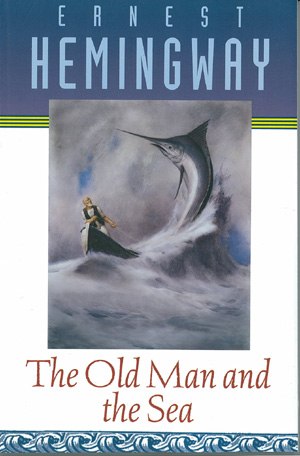
"No good book has ever been written that has in it symbols arrived at beforehand and stuck in. ... I tried to make a real old man, a real boy, a real sea and a real fish and real sharks. But if I made them good and true enough they would mean many things."-- Ernest Hemingway
The Old Man And The Sea
Ernest Hemingway lived a very full life. He traveled to and lived on nearly every continent, volunteered during the first World War as an ambulance driver in Italy, covered the Spanish Civil War as a journalist, and was present for the liberation of Paris after World War II. Beyond his writing he was an athlete and hunter, a man always set on adventure. His writing style mirrored his personality-- intense but sparse, with understated emotion and tightness.
The Old Man and the Sea was the last major work Hemingway published before his death. The story told is of an old man named Santiago in a Cuban fishing village who still goes out on his boat everyday. But something is going wrong for him-- he hasn't caught a fish in eighty-four days, an unlucky streak that raises the superstitions of everyone in the village. On the eighty-fifth day he sets out again, and by noon he has snared his biggest catch ever; a massive marlin that he can't manage to pull in by himself. Thus begins a battle between the man and the fish that lasts three days and two nights. Santiago, delirious and exhausted, ends it the third day by bringing the fish near his boat and harpooning it to death.
Thus he gains triumph over the fish, but final victory isn't his. Sharks begin circling his skiff, tearing away at his prize. Santiago does his best to destroy each of them as they come, killing five sharks altogether, but he is no match for the hoards that eventually destroy his marlin, leaving nothing but a skeleton. Eventually, he makes it back to his village with the carcass in tow, carrying the heavy mast of his boat back to his hut as the villagers gather around to stare at the fish and measure it. Meanwhile, the fisherman is in his hut, sleeping deeply after his ordeal.
It's a seemingly simple, if somewhat bizarre story. More than any other Hemingway novel it contains a great deal of religious imagery relating to the crucifixion of Christ, but it is far from a Christian book. Joseph Waldmeier wrote an essay on Hemingway's "Religion of Man", and had this to say on the books meaning:
""[There is] a third level on which The Old Man and the Sea must be read—as a sort of allegorical commentary on all his previous work, by means of which it may be established that the religious overtones of The Old Man and the Sea are not peculiar to that book among Hemingway's works, and that Hemingway has finally taken the decisive step in elevating what might be called his philosophy of Manhood to the level of a religion."
In the world of Hemingway, man does need a Saviour, but he is himself to fill that role. But one has to wonder why Hemingway, living a far from happy life and eventually committing suicide, thought that he would or could effectively save himself.
"And from the days of John the Baptist until now, the kingdom of heaven suffereth violence, and the violent bear it away."-- Matthew 11:12

The Violent Bear It Away
Flannery O'Connor produced only thirty-two short stories and two novels in her writing career, with the second novel, The Violent Bear It Away being written four years before her death. I've already written about O'Connor's works, so I won't give much biographical information here, but rather give more attention to her book.
The title comes from the gospel of Matthew, a verse which perfectly illustrates the story of Francis Tarwater. When the novel opens, Tarwater's great-uncle has just died-- an old man who seems to be crazed and obsessed with the idea that his nephew is called to be a prophet. It would seem that fourteen-year-old Tarwater's main objective as prophet is to baptize his young cousin, Bishop, who is mentally retarded. There are two problems standing in his way; the boy himself rejects the idea and wants nothing to do with his calling, and Bishop's father Rayber wants nothing to do with his uncle's religion.
However, Tarwater goes to live with his uncle Rayber in the city in an attempt to escape his old home in the backwoods. Of course he is repulsed by Bishop, and Rayber has great hopes of turning the boy into the whole son he doesn't have, turning him into as much of an agnostic as himself by giving him a secular education. He never thought that Tarwater would rebel against his efforts just as much as he did his great-uncle's religious training. But the boy seems quite determined to find his own way in the world, being beholden to no one and nearly driving Rayber mad while at it. Finally, the threesome go to a camp in the woods, driving the novel to it's conclusive action and at last determining what Francis Marion Tarwater is predestined to to do. At the story's close, he is rapidly going back to the city to "Go warn the children of God of the terrible speed of mercy."
In this story, O'Connor explores many of her usual themes of the depravity of man and the grace needed by him in his weak state. She explores the idea of predestination in Tarwater's inability to resist what he has been called to do as a prophet. She brings us face to face with the reality of our own deplorable state through showing us Tarwater's own helplessness. And in the end, we come to realize that we are those in need of the mercy that comes to us at "the terrible speed."

